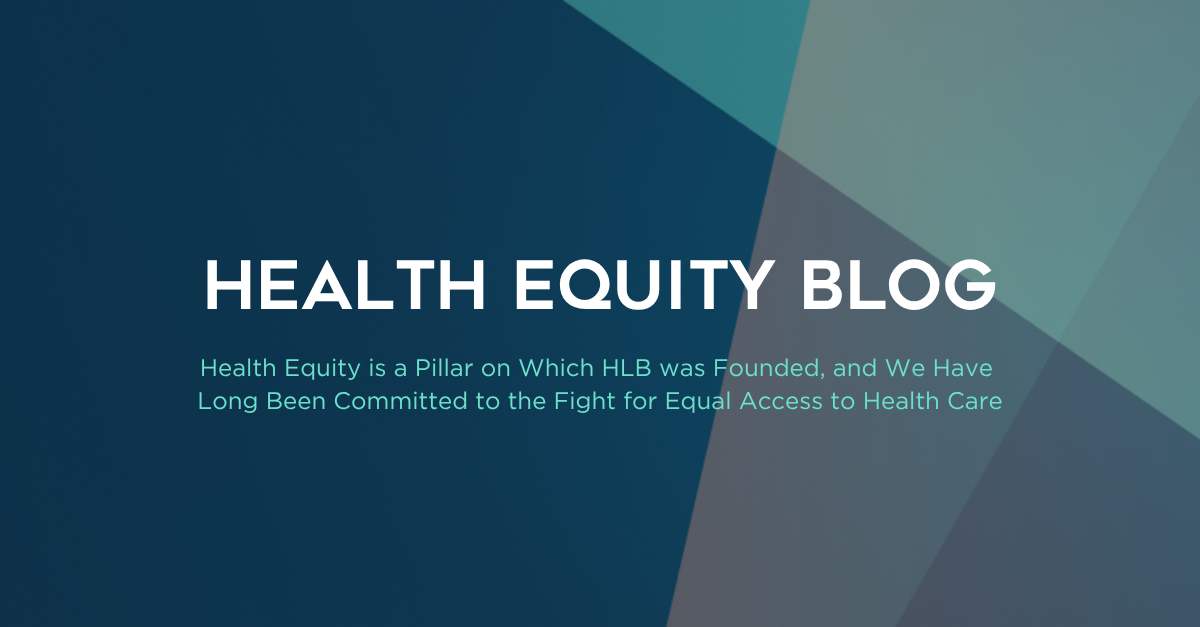
On behalf of the Hooper, Lundy & Bookman, PC Health Equity Task Force, here is our most recent HLB Health Equity Essentials:
BUDGET RECONCILIATION MEDICAID CUTS BECOME LAW
On July 4, President Trump signed the One Big Beautiful Bill Act (P.L.119-21). Congress used the budget reconciliation process to extend expiring 2017 tax cuts and other Administration priorities, while using health care, especially Medicaid, to partially pay for the new law. The Congressional Budget Office (CBO) estimates that Medicaid would be cut by over $1 trillion through work requirements, changes to provider taxes and other provisions leaving an estimated 10 million people uninsured by 2034. The negative effects to health care from this bill will be wide-reaching. Check out our HLB summary here.
GENDER-AFFIRMING CARE FEDERAL ACTION UPDATES
There have been notable federal developments related to gender-affirming care in recent weeks. On July 2, a federal judge ordered the FDA, CDC, and other federal agencies to restore the health care-related webpages they had “arbitrarily and capriciously” removed following Executive Order 14168 “Defending Women From Gender Ideology Extremism and Restoring Biological Truth to the Federal Government.” The court ruled that in implementing the executive order the agencies ran afoul of the Administrative Procedure Act. On July 9, the FTC hosted a workshop entitled, “The Dangers of ‘Gender-Affirming Care’ for Minors”. The DOJ has also recently announced that it has subpoenaed more than 20 health care providers who provide gender-affirming care to minors. These actions are part of its ongoing investigations into potential health care fraud related to these procedures, as previously directed by Attorney General Pam Bondi (more on the DOJ’s orders here).
HHS ANNOUNCES POLICY REVERSAL, EXCLUDING UNDOCUMENTED IMMIGRANTS AND SOME LAWFULLY PRESENT IMMIGRANTS FROM ACCESSING TAXPAYER-FUNDED PROGRAM BENEFITS
On July 14, HHS issued a notice reinterpreting the definition of “Federal public benefit” under the Personal Responsibility and Work Opportunity Reconciliation Act of 1996. As a result, HHS has identified additional HHS programs now considered to provide “Federal public benefit[s]” including, for example, Head Start and Mental Health and Substance Use Disorder Treatment block grants. HHS Secretary Robert F Kennedy, Jr. stated that the reinterpretation “restores integrity to federal social programs, enforces the rule of law, and protects vital resources for the American people.” On July 22, a group of 21 attorneys general have sued the Trump Administration, asking a court to stop the policy change arguing that the change is unlawful.
SCOTUS RESTRICTS INDIVIDUALS’ ABILITY TO SUE STATES UNDER THE MEDICAID ACT
On June 26, the U.S. Supreme Court issued its decision in Medina v. Planned Parenthood South Atlantic, ruling that the Medicaid Act’s any-qualified provider provision does not contain language that clearly shows Congress’s intent to create a private right of action against a state for non-compliance with the Medicaid Act. Since other provisions of the law similarly lack explicit language granting a private right of action, the ruling may have broader implications for future litigation under the Medicaid Act. You can read more about this decision here.
HIPAA PRIVACY RULE’S PROTECTIONS FOR REPRODUCTIVE HEALTH INFORMATION RULED UNCONSTITUTIONAL
On June 18, in Purl v. U.S. Department of Health and Human Services, the U.S. District Court for the Northern District of Texas vacated the 2024 HIPAA Privacy Rule to Support Reproductive Health Care Privacy (“New HIPAA Rule”). The New HIPAA Rule, which amended the HIPAA privacy regulations, imposes additional restrictions on the disclosure of a person’s reproductive health information for criminal and civil investigations and prosecutions. The Purl decision did not, however, affect the New HIPAA Rule’s amendments to the HIPAA privacy regulations regarding certain Notice of Privacy Practices provisions pertaining to substance use disorder (SUD) regulations.
STUDY FINDS MULTIPLE LAYERS IN HOSPITAL ADMINISTRATION NEEDED TO SUSTAIN HEALTH- RELATED SOCIAL NEEDS PROGRAMS
A study published in the June 17 edition of JAMA Network Open found that as a result of having both senior management and lower management engaged, hospitals were more likely to offer programs related to food insecurity, transportation, interpersonal violence, social isolation, and housing, all of which seek to improve health equity. When only senior management is involved, however, only those programs related to food insecurity and transportation were likely to be offered in hospitals.
NEW STUDY FINDS DISPARITIES IN OUT-OF-SEQUENCE DISTRIBUTION OF DONATED KIDNEYS
A new national study published in JAMA Internal Medicine highlights significant socioeconomic disparities in the out-of-sequence distribution of deceased donor kidneys. The findings suggest that these permissible deviations from the standard allocation algorithm have not been equitably applied and may have undermined efforts to maximize organ utilization. Between 2020 and 2023, the number of out-of-sequence deceased donor kidney transplants (DDKTs) in the United States increased nearly ninefold—from 342 cases (2% of all DDKTs in 2020) to 2,927 cases (16% in 2023). During that same period, the proportion of discarded kidneys rose by 6.8%. The study found that recipients of out-of-sequence kidney allocations were more likely to be older, of Hispanic ethnicity, privately insured, and not reliant on pretransplant dialysis—raising concerns about equity in access to life-saving transplants.
Professional
Brought to you by Sandi Krul, Alicia Macklin, and Monica Massaro.


